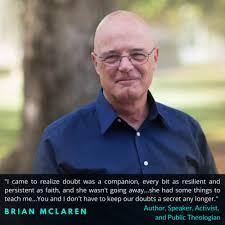
A Revelation of Heaven on Earth
Saturday 1st January 2022 | Author: Editor PCN Britain Website
We return today to CAC teacher Brian McLaren, who illustrates how one of the Bible’s most challenging books—Revelation—can be a source of wisdom and hope for us today:
There’s a beautiful visionary scene at the end of the Book of Revelation that is as relevant today as it was in the first century. It doesn’t picture us being evacuated from Earth to heaven as many assume. It pictures a New Jerusalem descending from heaven to Earth [see Revelation, chapter 21]. This new city doesn’t need a temple because God’s presence is felt everywhere. It doesn’t need sun or moon because the light of Christ illuminates it from within. Its gates are never shut, and it welcomes people from around the world to receive the treasures it offers and bring the treasures they can offer. From the center of the city, from God’s own throne, a river flows—a river of life or aliveness. Along its banks grows the Tree of Life. All of this, of course, evokes the original creation story and echoes God’s own words in Revelation: “Behold! I’m making all things new!”
continue reading:


